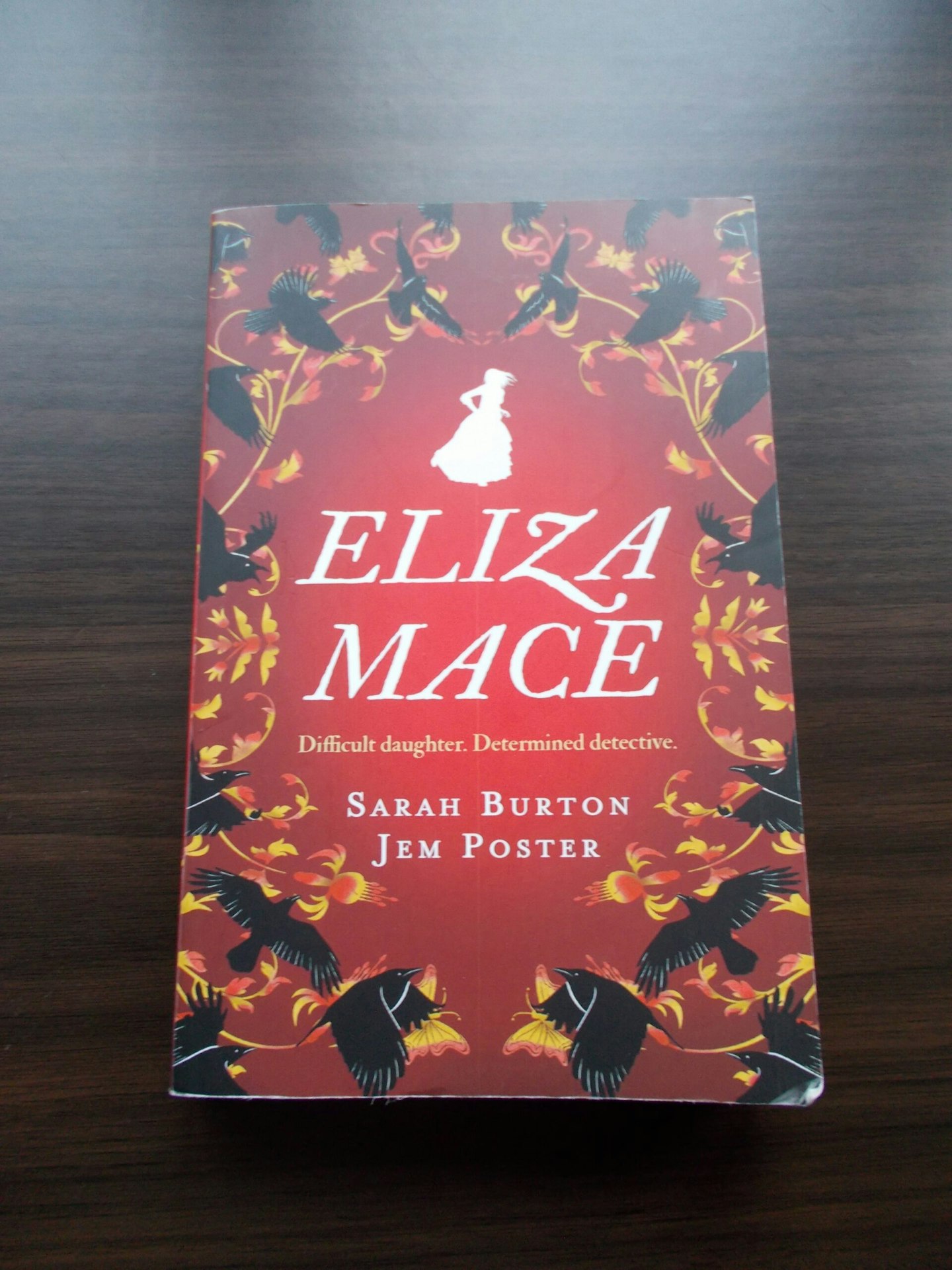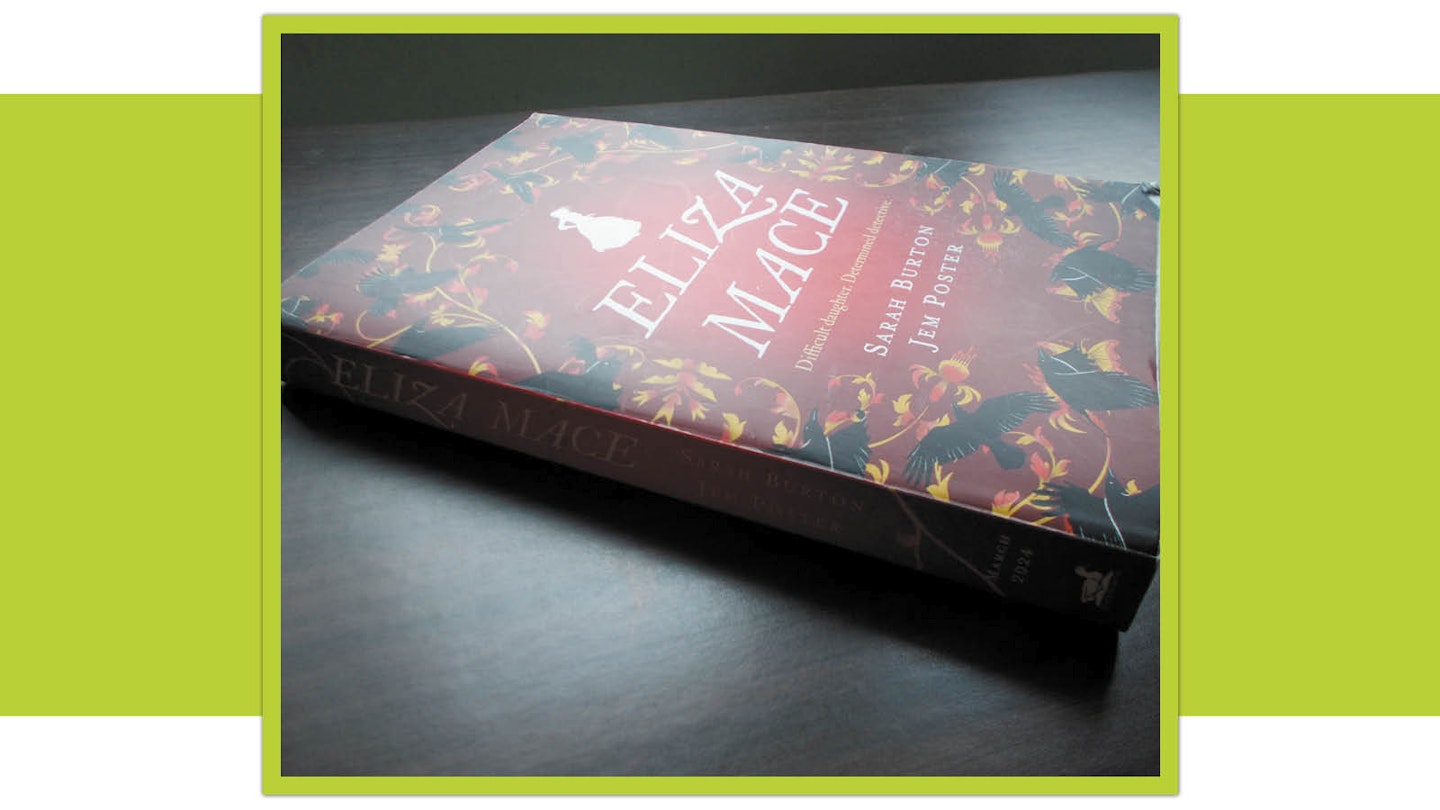The detective story is a great way to get under the skin of a society, to find in the bones the secrets that both underpin and undermine it. It’s therefore no surprise that so many authors of historical fiction have turned to the genre. It not only provides a strong narrative thread, but also allows the author an easy way into the darker side of their chosen era.
Sarah Burton and Jem Poster’s new novel, Eliza Mace, the first book in a planned series, takes place in and around an isolated country estate (Edge Hall) in the Welsh Borders, in the 1870s. In it, sixteen-year-old Eliza Mace turns detective following her father’s disappearance. She is soon joined by Dafydd Pritchard, a police constable from Cardiff, and together they attempt to solve the mystery.
Although this is their first novel together, both Burton and Poster have previously written novels separately. They both also have backgrounds in teaching creative writing and co-authored the non-fiction book The Book You Need to Read to Write the Book You Want to Write. In short, they know what they are doing. Eliza Mace is very readable and the two authors’ voices meld seamlessly into one.
A new sort of sleuth
What stands out most about the novel is its heroine. Eliza’s restless curiosity and resistance to society’s expectations for her as a young woman make her feel like a very modern character – and a natural detective – in spite of the novel’s historical setting. At the same time, she is also naïve, beginning the novel largely unaware of her father’s many shortcomings and failing at first to see the inequalities all around her.
As in many detective stories, the initial investigation uncovers more than one mystery and, over the course of the novel, Eliza discovers a number of uncomfortable truths about her family. For Eliza, the stakes are personal and the story becomes as much about her growing up and facing the adult world as about solving the central mystery.
Eliza Mace works well as a piece of detective fiction. It’s well-plotted and features enough red herrings and twists to keep the reader engaged, although its first half is a bit slow. However, it is less successful as a historical novel.
Setting the scene
What makes a really good historical novel are the small, surprising details that bring to life a particular time and place. In Eliza Mace, the estate’s isolation means that there is little sense of it existing in a specific historical context. While this introduces a slightly Gothic atmosphere and sharpens Eliza’s sense of being cut off from the world, it means that the novel’s setting too often feels generically Victorian, rather than specifically rooted in the 1870s. Similarly, while many of the villagers have Welsh names and at least one is implied to be a Welsh speaker, the Welsh setting is worn quite lightly. In fact, ‘Wales’ is never actually mentioned and most of the places referenced, such as Hereford or Bristol, are in England.

To be fair to the writers, there is one moment early on when the novel does take advantage of its Welsh setting. Talking to Eliza (or ‘Miss Elizabeth’ as her mother would prefer her to be known), one of the servants, Mrs Pugh, describes how her own name was forcibly changed on entering service: ‘I was never Eluned again, and when I think about it now, I see that I lost something of myself when I lost my name’. This small, subtle moment raises questions about language, identity and power all depend upon the novel’s Welsh setting; however, in most of the rest of the novel, this context fades into the background. Change a few names and a couple of details and Eliza Mace could easily be set in the hills of Yorkshire or Scotland.
Of course, none of this stops you from enjoying the book as a detective story, even if it never quite reaches its full potential. As the first in a series, it will be interesting to discover what else lies in store for Eliza.
Eliza Mace is available now from Duckworth, £16.99
by Sarah Burton and Jem Poster

www.hive.co.uk
